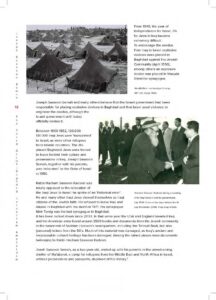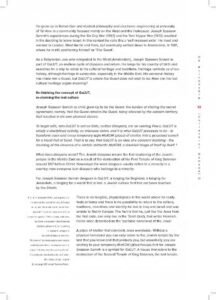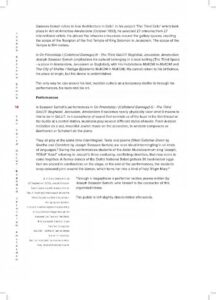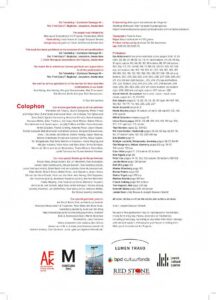
Noam Chomsky
The tension on the Russia-Ukraine border represents an ongoing conflict between two nations with many cultural affinities, but is also part of a much larger rivalry between the U.S. and Europe on one side, and Russia on the other. As Noam Chomsky reminds us in the exclusive interview for Truthout that follows, in 2014, a Russia-supported government in Ukraine was forcefully removed from power by a coup supported by the U.S. and replaced by a U.S. and European-backed government. It was a development that brought closer to war the two main antagonists of the Cold War era, as Moscow regards both U.S. and European involvement in Ukraine and the North Atlantic Treaty Organization’s (NATO) continued eastward expansion as part of a well-orchestrated strategy to encircle Russia. The strategy of encirclement is indeed as old as NATO itself, and this is the reason why Russian President Vladimir Putin issued recently a list of demands to the U.S. and NATO with regard to their actions in Ukraine and even parts of the former Soviet space. In the meantime, senior-level Russian officials have gone even further by warning of military response if NATO continues to ignore Moscow’s security concerns.
As Chomsky notes below, the Russia-Ukraine conflict is a solvable problem, but one wonders if the U.S. will remain dedicated to a “zombie policy” that could produce potentially awful consequences in the event of a diplomatic failure.
Noam Chomsky is internationally recognized as one of the most important intellectuals alive. His intellectual stature has been compared to that of Galileo, Newton and Descartes as his work has had tremendous influence on a variety of areas of scholarly and scientific inquiry, including linguistics, logic and mathematics, computer science, psychology, media studies, philosophy, politics and international affairs. He is the author of some 150 books and recipient of scores of highly prestigious awards, including the Sydney Peace Prize and the Kyoto Prize (Japan’s equivalent of the Nobel Prize), and of dozens of honorary doctorate degrees from the world’s most renowned universities. Chomsky is Institute Professor Emeritus at MIT and currently Laureate Professor at the University of Arizona.
C.J. Polychroniou: Following the undoing of the USSR between 1980-1991, people in Ukraine voted overwhelmingly in 1991 to declare independence from the crumbling communist empire. Since then, Ukraine has sought to align closely with the European Union (EU) and NATO, but Moscow has objected to such plans, as it has always considered Ukraine to be part of Russia, and, accordingly, continued to meddle in the country’s internal affairs. In fact, Ukraine became a battleground in 2014 when Putin decided to annex Crimea, which he called the “spiritual source” of the Russian state, and, since then, tensions between the two countries have been very hard to diffuse. In your own view, what’s really behind the conflict between Russia and Ukraine?
Noam Chomsky: There’s more to add, of course. What happened in 2014, whatever one thinks of it, amounted to a coup with U.S. support that replaced the Russia-oriented government by a Western-oriented one. That led Russia to annex Crimea, mainly to protect its sole warm water port and naval base, and apparently with the agreement of a considerable majority of the Crimean population. There’s extensive scholarship on the complexities, particularly Richard Sakwa’s Frontline Ukraine and more recent work.
There’s an excellent discussion of the current situation in a recent article in The Nation by Anatol Lieven. Lieven argues realistically that Ukraine is “the most dangerous [immediate] problem in the world,” and “also in principle the most easily solved.” The solution has already been proposed and accepted — in principle: the Minsk II agreement, adopted by France, Germany, Russia and Ukraine in 2015, and endorsed unanimously by the UN Security Council. The agreement tacitly presupposes withdrawal of George W. Bush’s invitation to Ukraine to join NATO, reaffirmed by Barack Obama, vetoed by France and Germany, an outcome that no Russian leader is likely to accept. It calls for disarmament of the separatist Russia-oriented region (Donbas) and withdrawal of Russian forces (“volunteers”), and spells out the key elements of settlement, with “three essential and mutually dependent parts: demilitarization; a restoration of Ukrainian sovereignty, including control of the border with Russia; and full autonomy for the Donbas in the context of the decentralization of power in Ukraine as a whole.” Such an outcome, Lieven observes, would not be unlike other federations, including the U.S.
Minsk II has not been implemented because of disagreements about timing of its various measures. The issue has been “buried” in U.S. political circles and media, Lieven writes, “because of the refusal of Ukrainian governments to implement the solution and the refusal of the United States to put pressure on them to do so.” The U.S., he concludes, has been keeping to “a zombie policy — a dead strategy that is wandering around pretending to be alive and getting in everyone’s way, because U.S. policy-makers have not been able to bring themselves to bury it.”
The imminent dangers make it imperative to bury the policy and adopt a sound one.
To overcome the impasse will not be easy, but as Lieven observes, the only alternatives are too horrendous to consider. The essentials are understood: Austrian-style neutrality for Ukraine, which means no military alliances or foreign military bases, and an internal resolution in the general terms of Minsk II.
“The most dangerous problem in the world” can therefore be solved with a modicum of rationality.
The broader context reaches back to the collapse of the Soviet Union 30 years ago. There were three contrasting visions of the global order that should be established in the wake of its collapse. All accepted that Germany would be unified and would join NATO — a remarkable concession by Russia, considering that Germany alone, not part of a hostile military alliance, had virtually destroyed Russia twice in the past century, a third time joining with the West (including the U.S.), in the “intervention” immediately after the Bolsheviks took power.
One proposal was Mikhail Gorbachev’s: a Eurasian security system from the Atlantic to Vladivostok, with no military blocs. The U.S. never considered that as an option. A second proposal was offered by George H.W. Bush and his Secretary of State James Baker, endorsed by West Germany: NATO would not move “one inch to the East,” meaning East Berlin; nothing beyond was contemplated, at least publicly. The third was Bill Clinton’s: NATO would move all the way to the Russian border, carry out military maneuvers in the states adjoining Russia, and place weapons on the Russian border that the U.S. would certainly regard as offensive weapons in the (inconceivable) event that it would even tolerate anything remotely comparable anywhere in its vicinity. It was the Clinton Doctrine that was implemented.
The asymmetry is far more deeply rooted. It is a core component of the “rule-based international order” that the U.S. advocates (while by coincidence, setting the rules), replacing the supposedly archaic UN-based international order that bans “the threat or use of force” in international affairs. The latter condition is unacceptable to rogue states that demand the right to employ the threat of force constantly, and to resort to force at will. An important topic that we have discussed before.
One crucial illustration of the rule-based asymmetry that should be familiar is President Kennedy’s response to Nikita Khrushchev’s sending of nuclear missiles to Cuba — in reaction to the threat of invasion as the culmination of JFK’s terrorist war against Cuba, and to his huge arms buildup in response to Khrushchev’s offer for mutual reduction of offensive weapons even though the U.S. was far in the lead. The critical issue that almost led to devastating war was the status of U.S. nuclear-armed missiles aimed at Russia in Turkey. As the crisis moved ominously close to war, the key issue was whether the missiles should be publicly withdrawn (as Khrushchev requested) or only secretly (as Kennedy demanded). In fact, the U.S. had already ordered them withdrawn to be replaced by far more menacing Polaris submarines, so there was no withdrawal at all, only escalation.
The crucial asymmetry is presupposed, an inviolable principle of world order, established more extensively as the Clinton’s NATO Doctrine was imposed.
It should be recalled that this was only one component of a more expansive Clinton Doctrine, which accords the U.S. the right to use military force “unilaterally when necessary” to defend vital interests such as “ensuring uninhibited access to key markets, energy supplies and strategic resources.” No one else can claim such a right.
There is extensive scholarly debate about the status of the Bush-Baker proposal. The agreement was only verbal, as argued in justification when Washington instantly violated it, moving troops to East Berlin. But the basic facts are not seriously in doubt.
NATO was founded in response to the alleged threat posed to Western democracies by the Soviet Union. Yet, NATO not only did not disappear after the end of the Cold War, but continued its expansion eastwards and, as a matter of fact, regards Ukraine today as a potential member. What is the relevance of NATO today, and to what extent is it responsible for escalating tensions on Russia’s borders and for potentially ushering in a new Cold War?
The expansion to the East, including regular military maneuvers and threatening weapons systems, is clearly a factor in escalating tensions, the offer to Ukraine to join NATO even more so, as just discussed.
In thinking about the acutely dangerous current situation, it’s useful to bear in mind the founding of NATO and the “alleged threat.” There’s a good deal to say about that topic, specifically about how the Russian threat was actually perceived by planners. Inquiry shows that it was quite different from the fevered rhetoric employed “to scare the hell out of the country” in a manner “clearer than truth” (Sen. Arthur Vandenberg and Dean Acheson, respectively).
It is well-known that the influential planner George Kennan considered the Russian threat to be political and ideological, not military. He was, in fact, sent out to pasture early on for failure to join in the largely manufactured panic. Still, it’s always instructive to see how the world is perceived at the dovish extreme.
As head of the State Department planning staff, Kennan was so concerned about the threat from postwar Russia in 1946 that he felt that partition of Germany might be necessary in violation of wartime agreements. The reason was the need to “rescue Western zones of Germany by walling them off against Eastern penetration,” not, of course, by military force, but by “political penetration,” where the Russians had the advantage. In 1948, Kennan advised that, “The problem of Indonesia [is] the most crucial issue of the moment in our struggle with the Kremlin,” even though the Kremlin was nowhere in sight. The reason was that if Indonesia falls under “Communism” it could be an “infection [that] would sweep westward” through all of South Asia, even endangering U.S. control of the Middle East.
The internal record is littered with similar illustrations of oblique, sometimes quite explicit, recognition of reality. In general, “The Kremlin” became a metaphor for anything that might fall out of U.S. control — until 1949, when the “Sino-Soviet conspiracy” could sometimes fill the bill.
Russia was indeed a threat, within its Eastern European domains, just as many around the world can attest to threats of the U.S. and its Western allies. There should be no need to sample that awful history. NATO had little role in it.
With the collapse of the USSR, the official justification for NATO was gone, and something new had to be devised. More generally, some new pretext had to be devised for violence and subversion. One device, quickly seized upon, was “humanitarian intervention.” This was soon framed within the doctrine of “Responsibility to Protect” (R2P). Two versions were formulated. The official version was adopted by the UN in 2005. It keeps to the strictures of the UN Charter banning the threat or use of force in international affairs apart from conditions irrelevant to R2P, proceeding beyond only in calling on states to observe humanitarian law.
That’s the official version of R2P. A second version was formulated by the Report of the International Commission on Intervention and State Sovereignty on Responsibility to Protect (2001), produced under the initiative of former Australian Foreign Minister Gareth Evans. It departs from the official version in one crucial respect: a situation in which “the Security Council rejects a proposal or fails to deal with it in a reasonable time.” In that case, the Report authorizes “action within area of jurisdiction by regional or sub-regional organizations under Chapter VIII of the Charter, subject to their seeking subsequent authorization from the Security Council.”
In practice, the right to intervene is reserved to the powerful — in today’s world, to the NATO powers, which are also unilaterally able to determine their own “area of jurisdiction.” They did in fact do so. NATO unilaterally determined that its “area of jurisdiction” includes the Balkans, then Afghanistan, and well beyond. NATO Secretary-General Jaap de Hoop Scheffer instructed a NATO meeting in June 2007 that, “NATO troops have to guard pipelines that transport oil and gas that is directed for the West,” and more generally have to protect sea routes used by tankers and other “crucial infrastructure” of the energy system. NATO’s area of jurisdiction is therefore worldwide.
To be sure, some do not agree; in particular, the traditional victims of the kind tutelage of Europe and its offshoots. Their opinion, as always dismissed, was made explicit in the first meeting of the South Summit of 133 states (April 2000). Its declaration, surely with the recent bombing of Serbia in mind, rejected “the so-called ‘right’ of humanitarian intervention, which has no legal basis in the United Nations Charter or in the general principles of international law.” The wording of the declaration reaffirms earlier UN declarations to the same effect, and is mirrored in the official version of R2P.
Standard practice since has been to refer to the official UN version as justification for whatever is done but to keep to the Evans Commission version for determination of choice of action.
There are indications that Russia is building capacity to attack Ukraine, with some military analysts claiming that this could happen in the first couple months of the new year. While it is not likely that NATO would intervene militarily in a conflict between Russia and Ukraine, a Russian invasion of Ukraine would surely bring about a dramatic transformation of the international landscape. What would be the most realistic solution to the Ukraine conflict?
The indications are real, and ominous. Most serious analysts doubt that Putin would launch an invasion. He would have a great deal to lose — maybe everything if the U.S. reacted with force, as we all might. At best from his perspective, Russia would be engaged in a bitter “endless war” and subjected to very severe sanctions and other harsh measures. I presume that Putin’s intention is to warn the West not to disregard what he takes to be Russian interests, with some justice.
There is a realistic solution: the one that Anatol Lieven outlined. As he discusses, it is not easy to imagine another one. And none has been proposed.
Fortunately, this solution is within reach. It is of great importance to keep popular opinion from being inflamed by all-too familiar devices that have led to catastrophe in the past.
Copyright © Truthout. May not be reprinted without permission.
C.J. Polychroniou is a political scientist/political economist, author, and journalist who has taught and worked in numerous universities and research centers in Europe and the United States. Currently, his main research interests are in U.S. politics and the political economy of the United States, European economic integration, globalization, climate change and environmental economics, and the deconstruction of neoliberalism’s politico-economic project. He is a regular contributor to Truthout as well as a member of Truthout’s Public Intellectual Project. He has published scores of books and over 1,000 articles which have appeared in a variety of journals, magazines, newspapers and popular news websites. Many of his publications have been translated into a multitude of different languages, including Arabic, Chinese, Croatian, Dutch, French, German, Greek, Italian, Japanese, Portuguese, Russian, Spanish and Turkish. His latest books are Optimism Over Despair: Noam Chomsky On Capitalism, Empire, and Social Change (2017); Climate Crisis and the Global Green New Deal: The Political Economy of Saving the Planet (with Noam Chomsky and Robert Pollin as primary authors, 2020); The Precipice: Neoliberalism, the Pandemic, and the Urgent Need for Radical Change (an anthology of interviews with Noam Chomsky, 2021); and Economics and the Left: Interviews with Progressive Economists (2021).


















